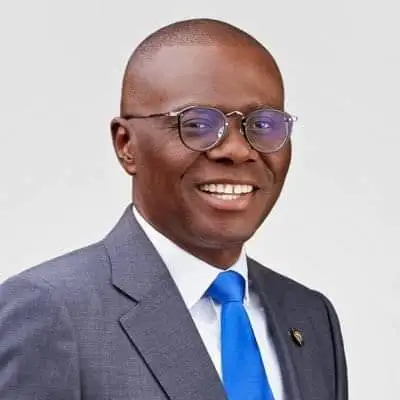By Segun Ajayi
Governor Babajide Olusola Sanwo-Olu effortlessly comes to you as a leader filled with empathy. The humanity in him underscored the government’s responses to cases of human rights violations in the state.
Typical of a man who, from the outset, considered the justice delivery system and workers’ welfare among pillars of his administration, it was not unexpected that Sanwo-Olu has been on top of the alleged killing of Mrs Bolanle Raheem by a police officer in Ajah area on Christmas Day. He is not only hands-on, to ensure that justice is done, but that justice is indeed delivered.
Recall that shortly after the tragic incident, the governor met the Inspector General of Police (IGP), Usman Baba Alkali to brief him about the security situation. He also escalated the state government’s interest in the murder case and ensured that the investigation was swift and there was no cover-up. To this, the IGP gave his words that there’ll be no hanky-panky and agreed with the governor that the state’s Attorney General and Commissioner for Justice, Moyo Onigbanjo took over the prosecution of the suspect.
The governor did not stop there, he reinforced his stand on justice for Raheem by sending a delegation, led by the Attorney General and Commissioner for Justice, to condole with the family and reassure them that justice would be done.
It is this disposition that defined Sanwo-Olu’s interaction with Nigerian youths during the #ENDSARS protest. The governor acknowledged the exuberance of the youths and fraternised with them and even took their grievances to the presidency. Even after the incident at Lekki Toll gate, the governor stood out among the few who instituted a probe panel into police brutalities, especially the various experiences of youths in the hands of men of the Special Anti-Robbery Squad (SARS). He complied with the Federal Government directive by promptly putting together The Judicial Panel of Inquiry and Restitution on the Lekki Toll Gate incident and cases of police brutality as well as human rights violations. The panel was headed by retired Justice Doris Okuwobi.
After the panel wound up its sittings, the state government ensured the implementation of the panel’s report, among which is the payment of monetary compensations and recommendation for the dismissal of policemen found culpable in the cases. In all, the state government paid a whooping N410.2 million to 70 victims who gave evidence before the panel. The governor also set aside N60 million for the families of police officers killed in the aftermath of the 20 October 2020 incident at the Lekki toll gate. Before then, Sanwo-Olu had announced an N200 million compensation fund for families of victims of the SARS killings.
Anti-cultism bill signed into law
Apparently miffed by incessant cult-related clashes in Lagos, Governor Sanwo-Olu introduced stiffer penalties to combat the menace last March. The anti-cultism bill, which prescribes a 21-year jail term for convicted cultists and those abetting them, was signed into law. The law unarguably is a back-breaker to the cult groups as areas hitherto, terrorised by the groups now have a breath of fresh air.
Firefighting and emergency response
Determined to enhance the operations of men of the state fire service and reduce response time to emergencies. Governor Sanwo-Olu on 27 October inaugurated 62 fire-fighting trucks and rapid intervention vehicles. During the event, which coincided with the 50th anniversary of the state’s fire service, Sanwo-Olu commissioned three new service stations and admitted 435 firefighters into the state’s service.
Improving workers welfare
Governor Sanwo-Olu appreciated the need to improve the welfare and socio-economic well-being of the state’s workforce and create an enabling environment for them. Interestingly, Lagos State is one of the few states that implemented the N30,000 minimum wage, and only last month, the governor announced a pay rise for workers in the public service even though implementation will begin in January next year.
Social welfare programmes
Under governments social welfare programmes, the state has continued to reach out to the citizens with various incentives to boost their standard of living. Notably in this category is the payment of N40,000 monthly to 4,000 unemployed graduates, including direct gratification to widows.
Grants have also been made available to business owners at various times in the state to provide much-needed financial support and assistance to their business enterprises in the wake of the Covid-19 pandemic and beyond.

